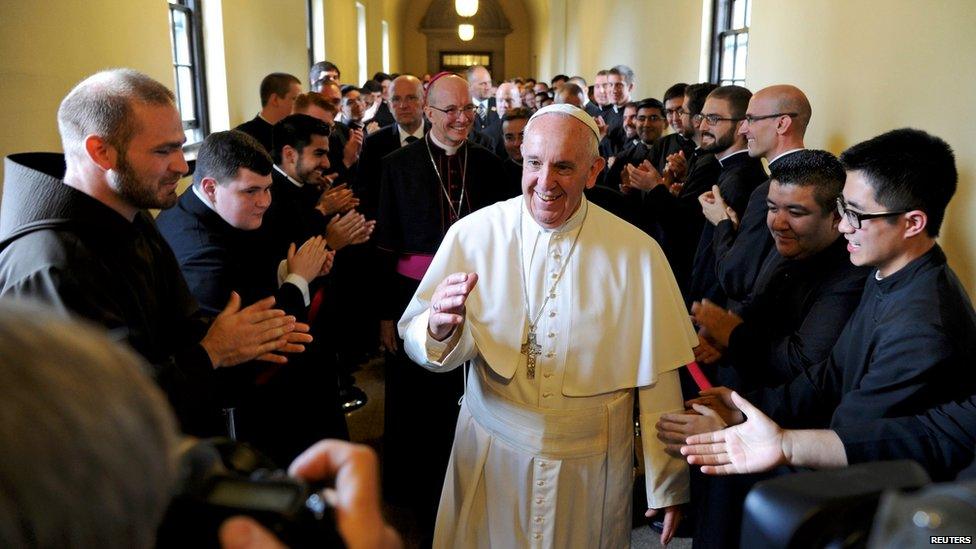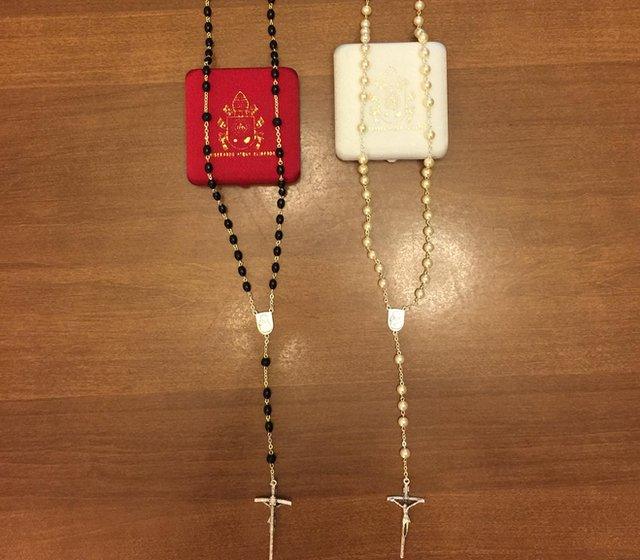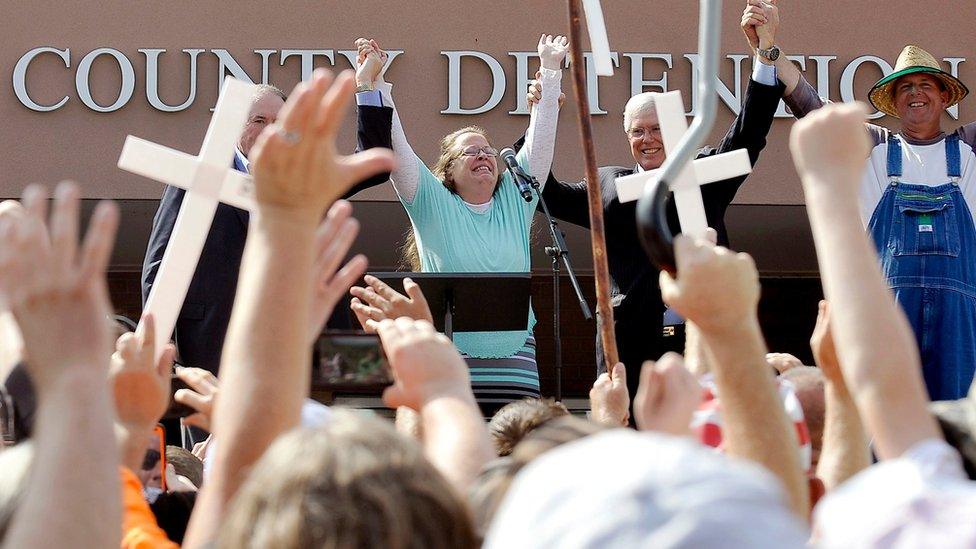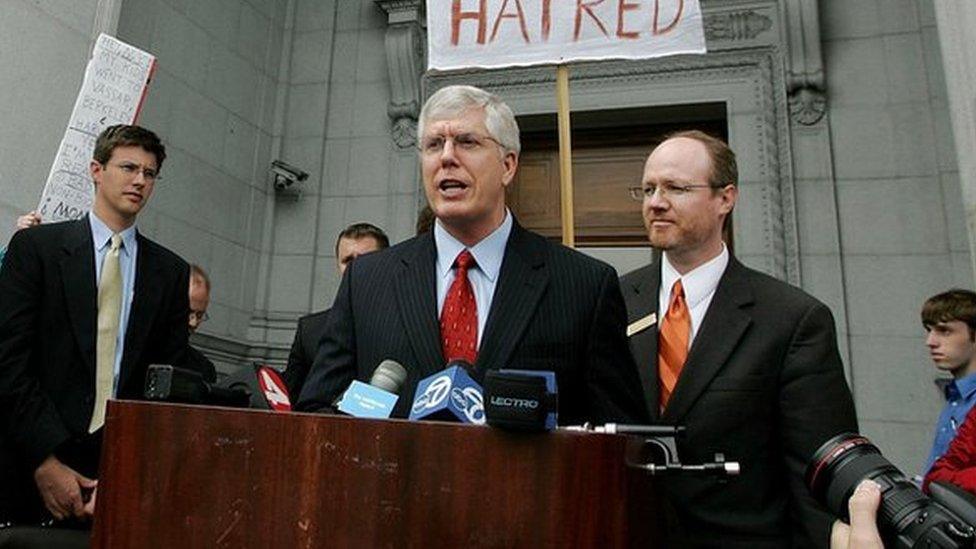Pope Francis 'met gay marriage row clerk' Kim Davis on US trip
- Published

The Pope has just returned from an historic trip to the United States
Pope Francis reportedly met Kim Davis, a Kentucky clerk who was jailed for refusing to issue same-sex marriage licences, during his visit to the US.
Mrs Davis's lawyer said she had a 15-minute private meeting with the Pope at the Vatican Embassy in Washington.
Vatican spokesman Frederico Lombardi said that he "does not deny" that a meeting took place.
Mrs Davis opposes gay marriage and argued that her Christian faith should exempt her from issuing licences.
She spent six days in jail earlier this month after defying a federal court order to give marriage licences to gay couples in Rowan, Kentucky.
Mat Stavers, Mrs Davis's lawyer, told CBS News, external that Mrs Davis and her husband had been invited to meet the Pope following the media storm surrounding her stance.
Pope Francis "thanked her for her courage" and told her to "stay strong", Mr Stavers said.
Mr Stavers' group, the Liberty Counsel, says Pope Francis gave rosaries to Ms Davis and her husband Joe.
The group said they are waiting on the Vatican for pictures of the visit.

The rosaries Kim Davis says Pope Francis gave to her

Mrs Davis made headlines for her controversial refusal to issue marriage licences to gay couples
The Pope was asked for his views on the question of government officials refusing to discharge their duties because of their religious beliefs during his return from the US on Sunday.
He told reporters on his flight back to Rome that conscientious objection was a "human right".
"It is a right. And if a person does not allow others to be a conscientious objector, he denies a right," he said.
Under Pope Francis's leadership, the Catholic church has taken a slightly more compassionate view of homosexual relationships than under his predecessors, the BBC's David Willey reports from Rome.
- Published4 September 2015

- Published8 September 2015
